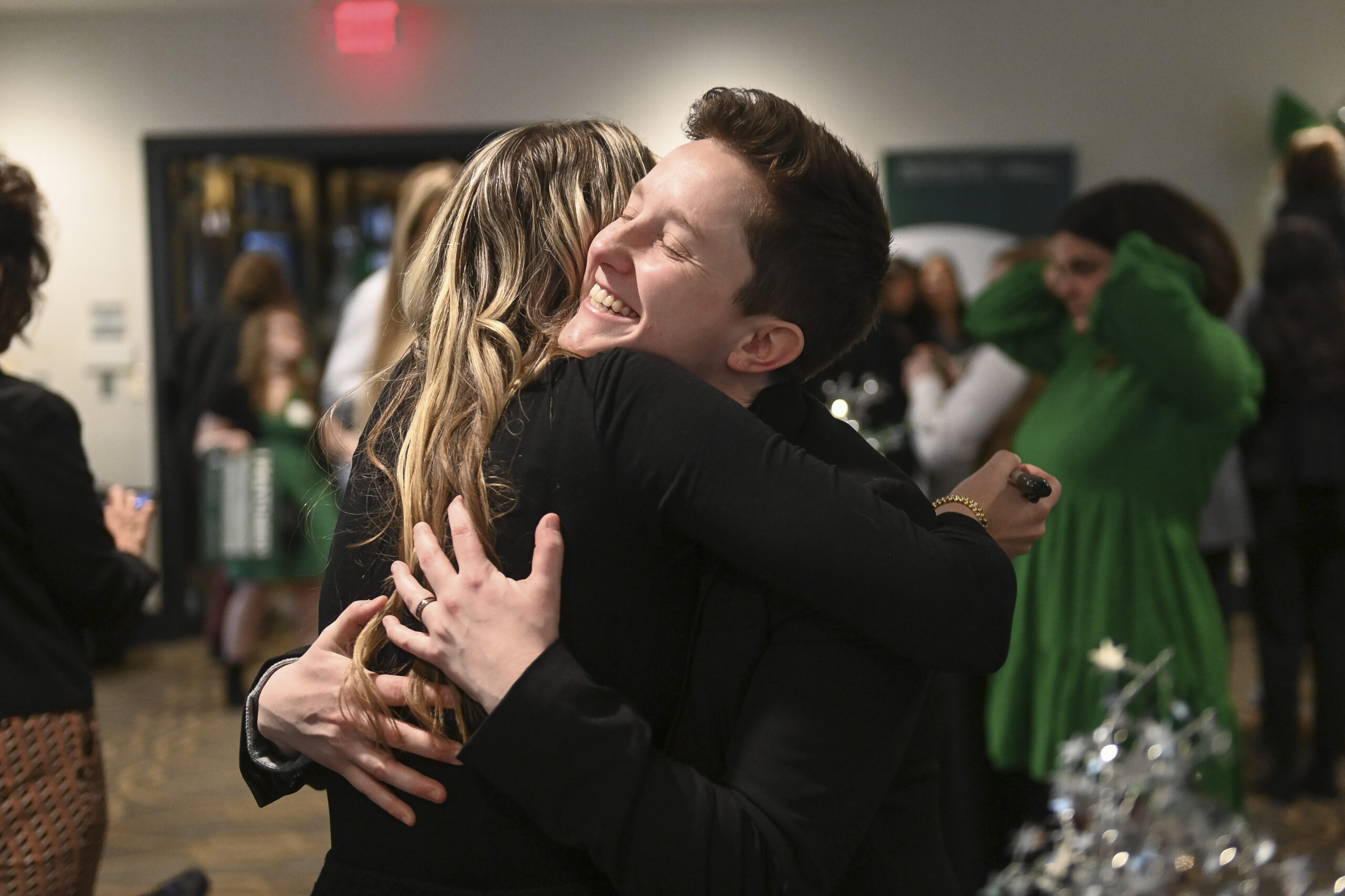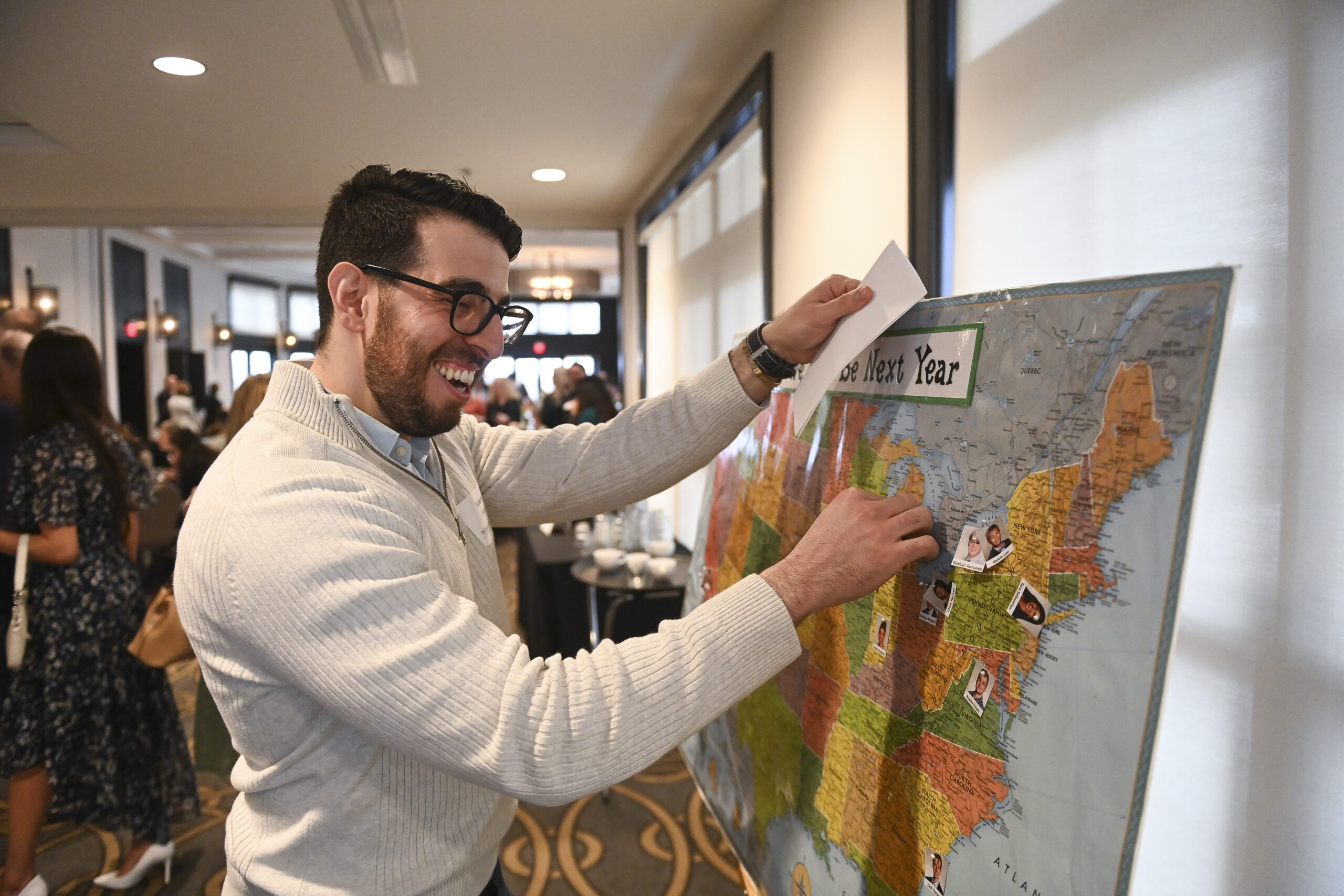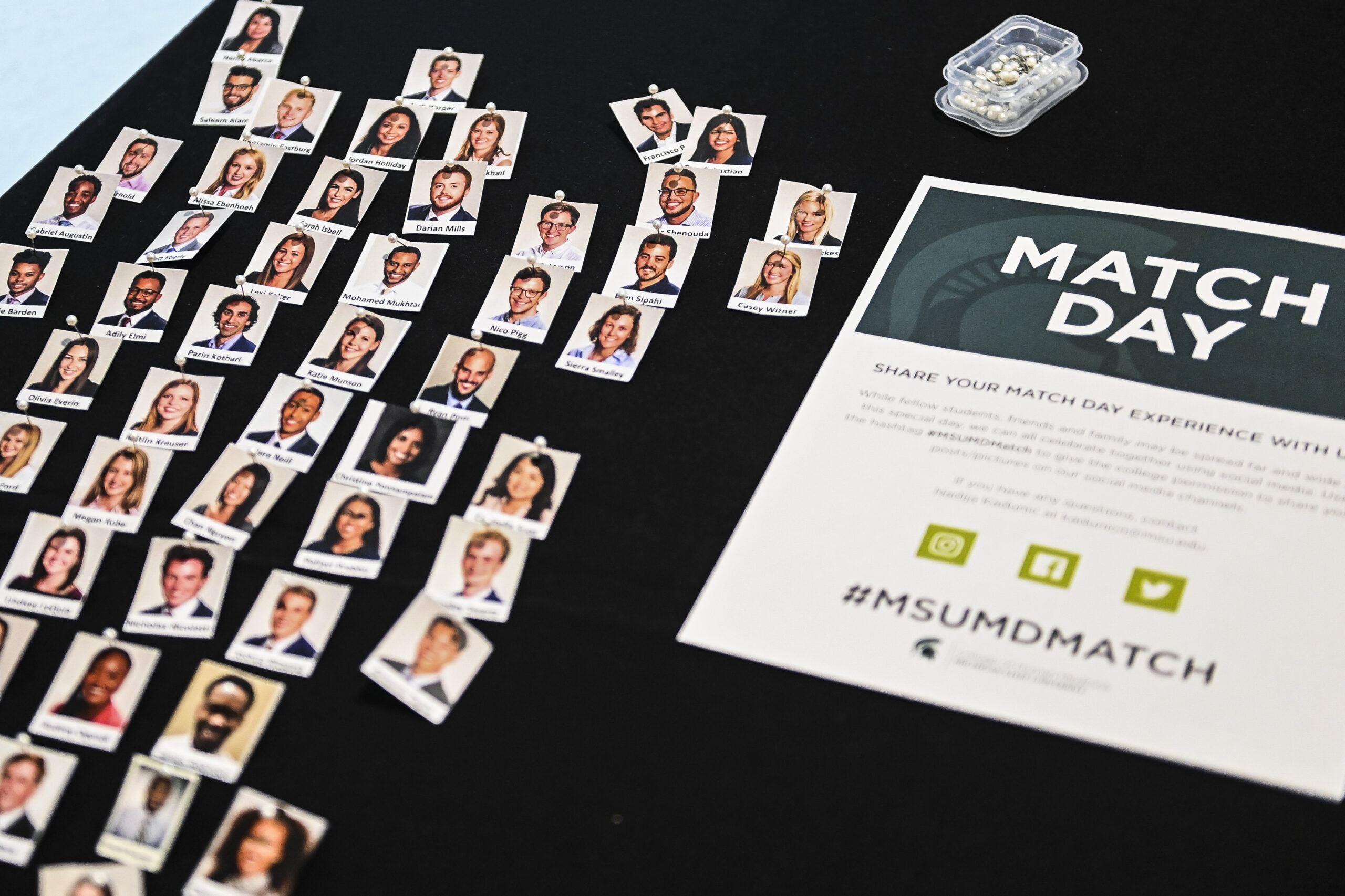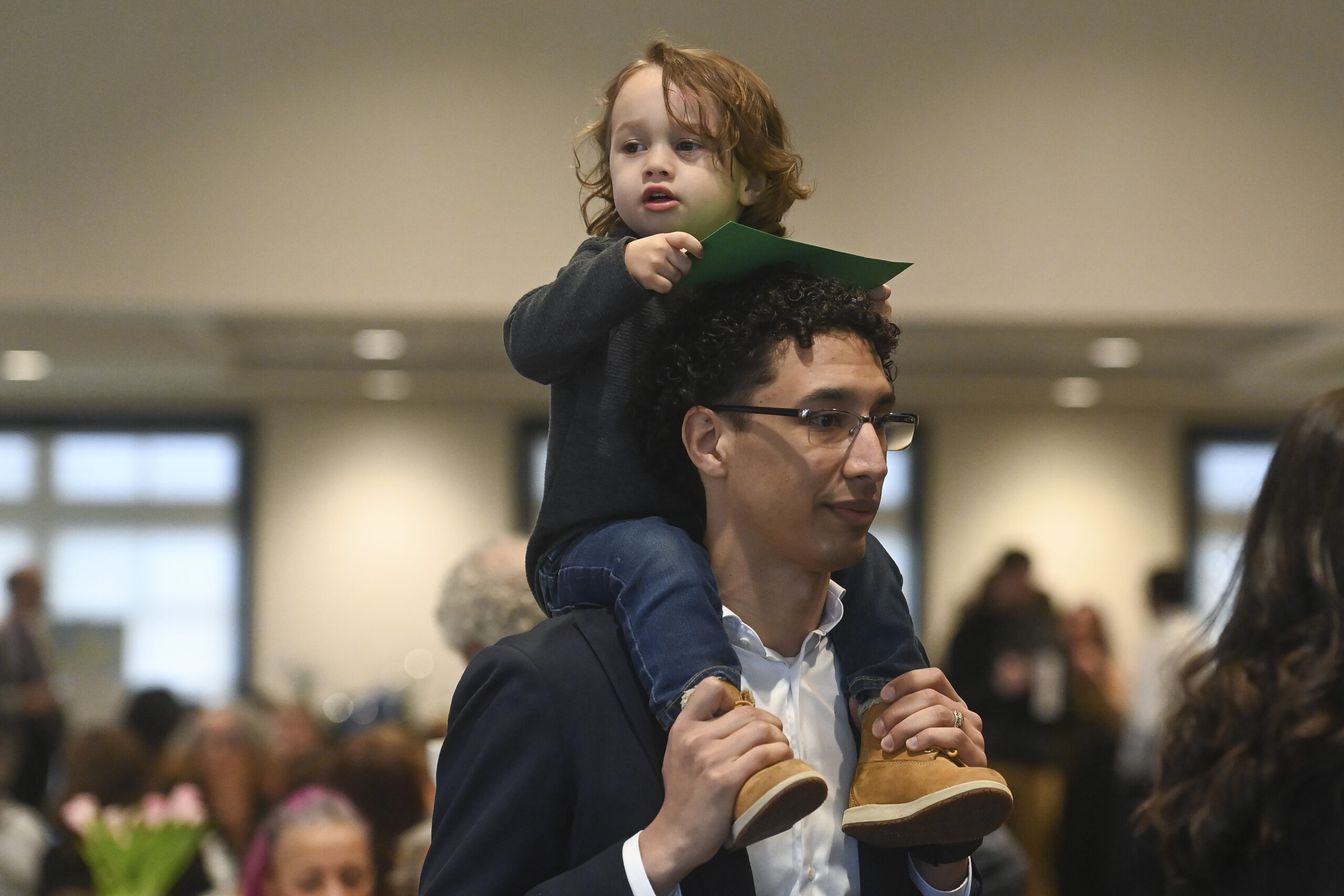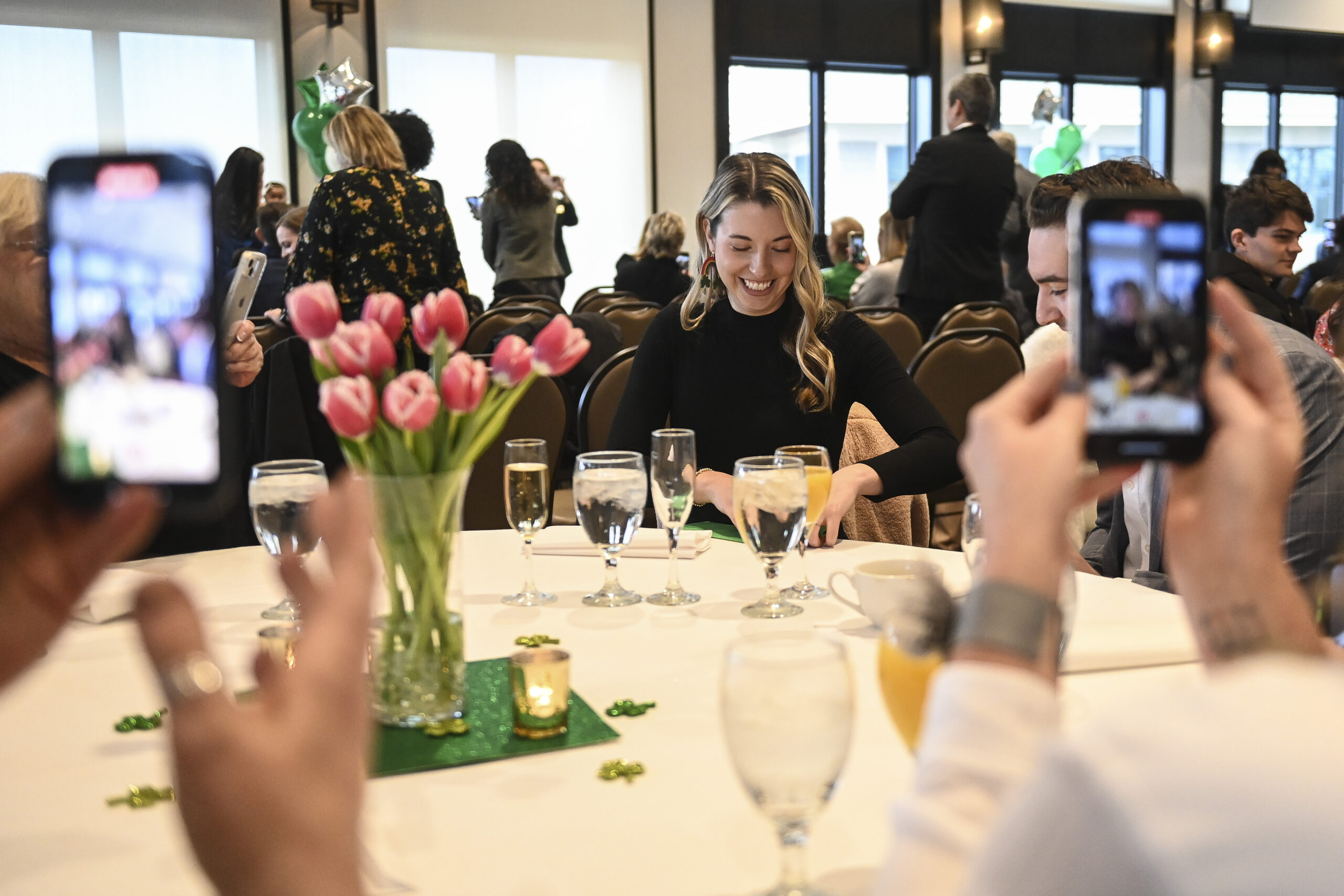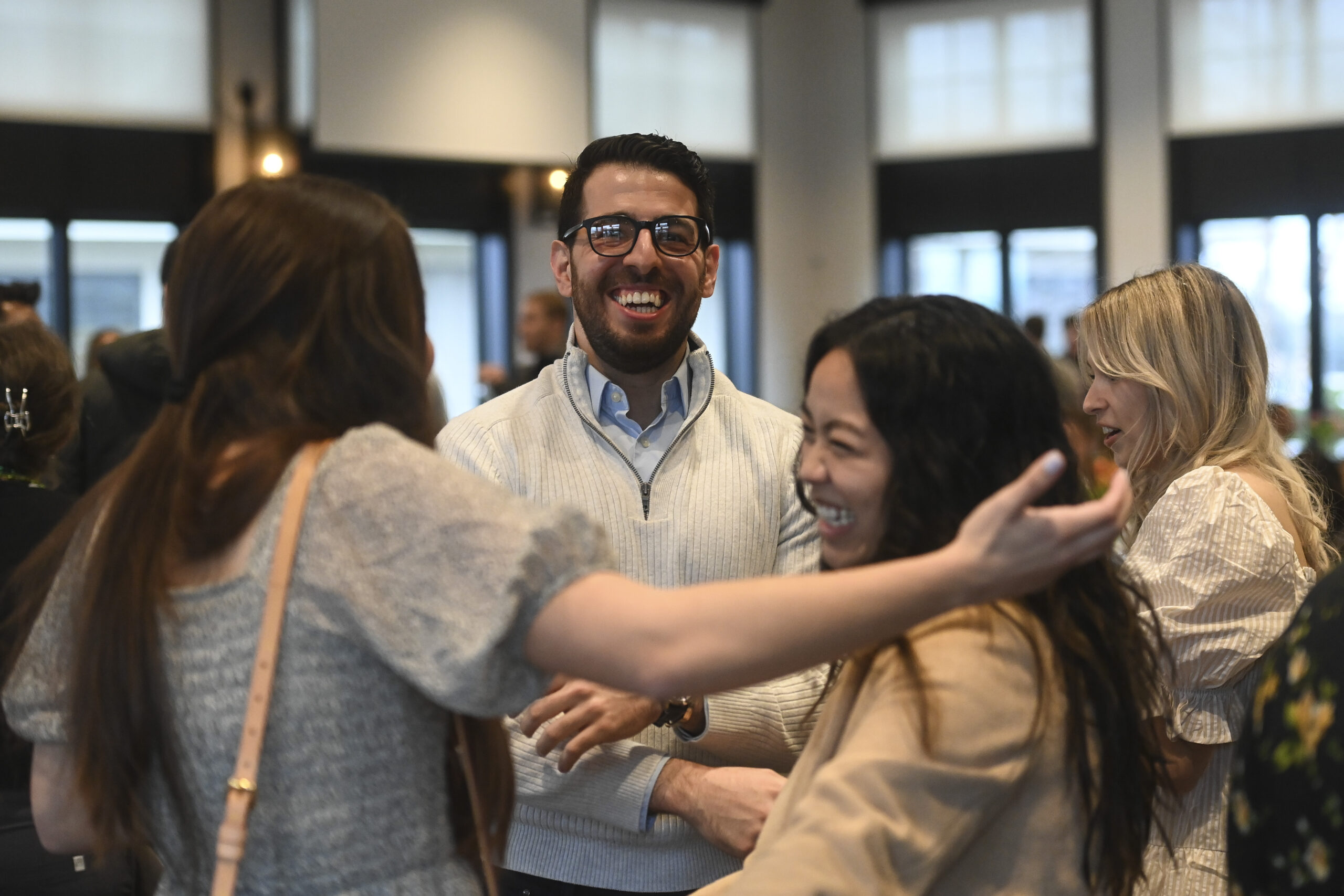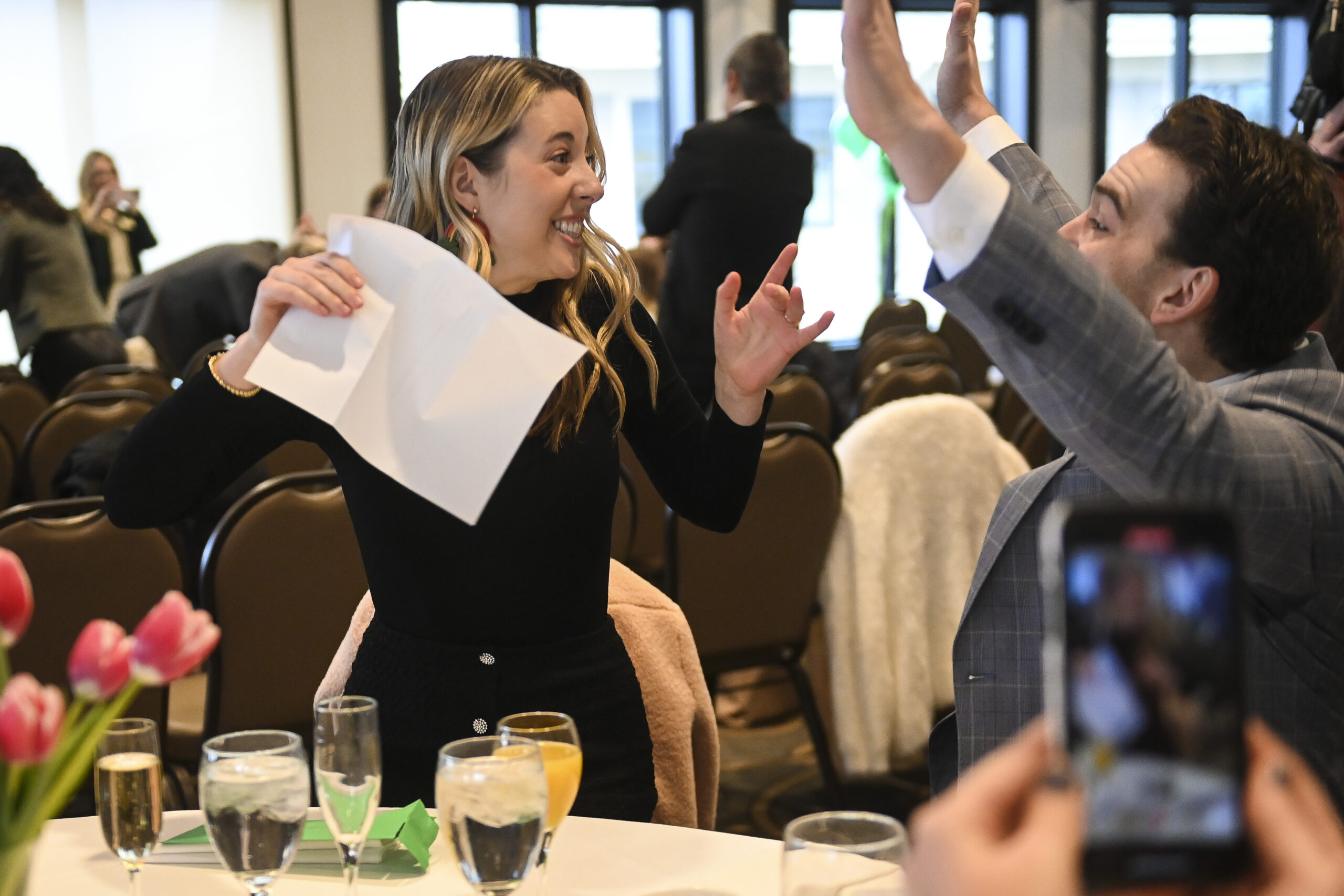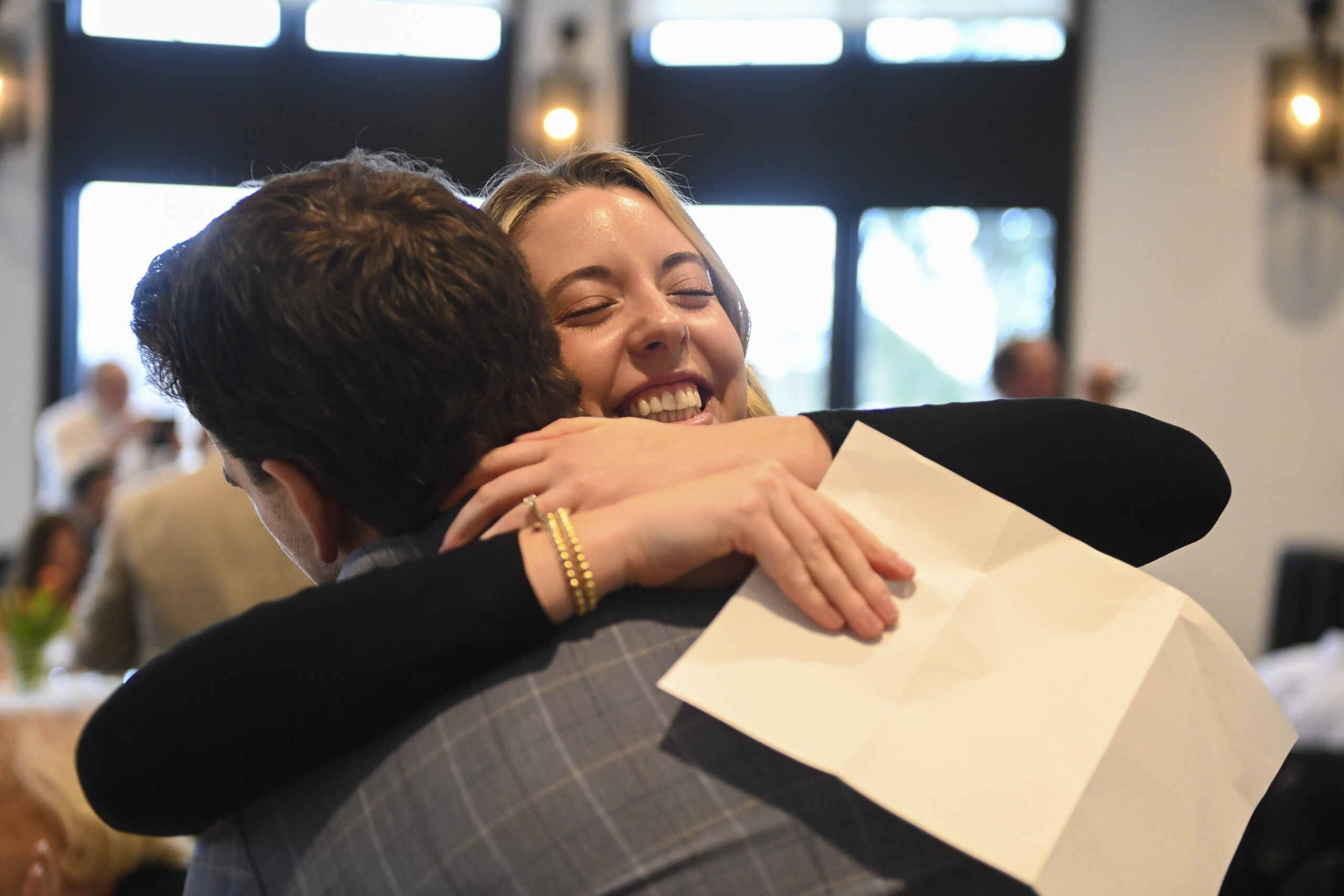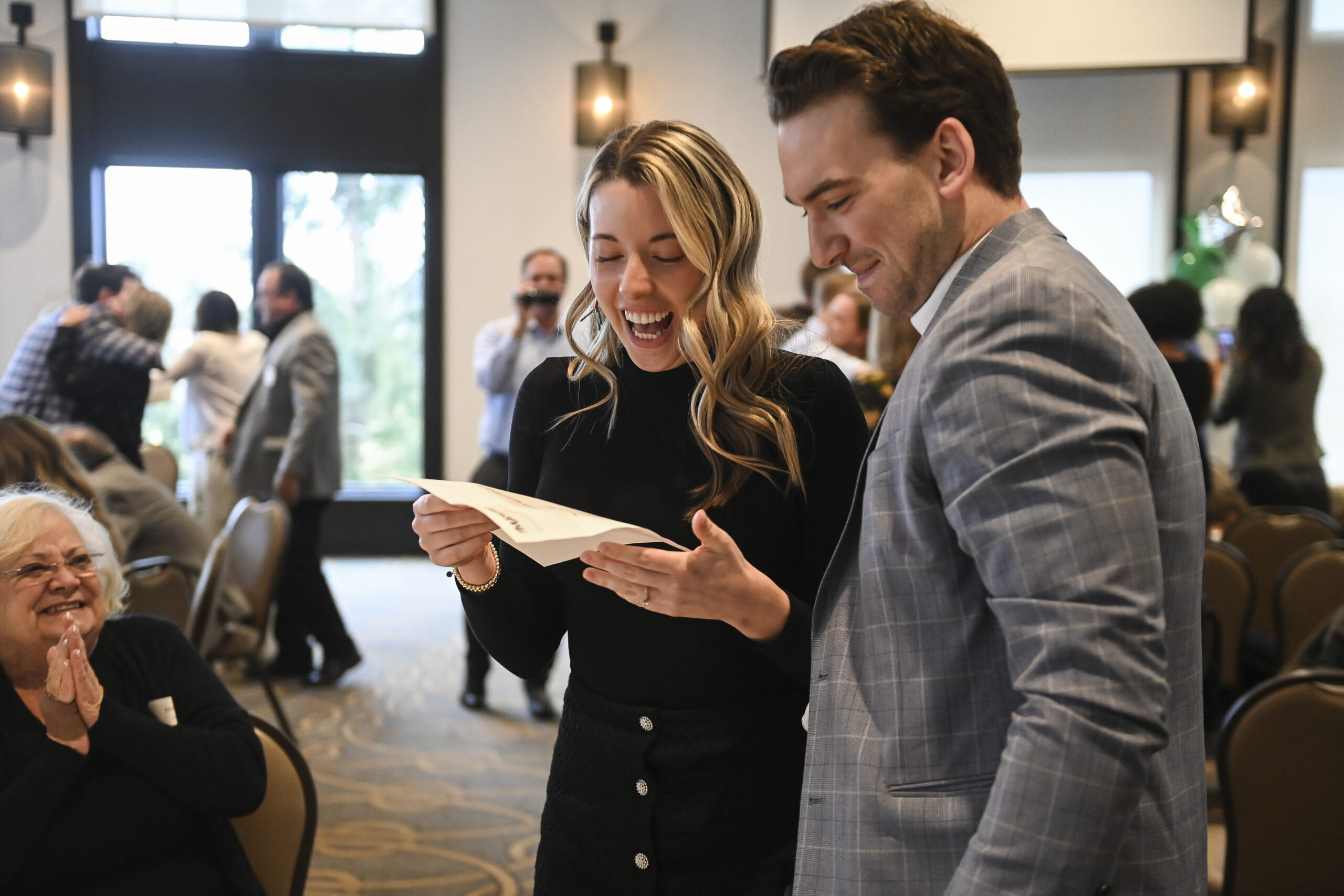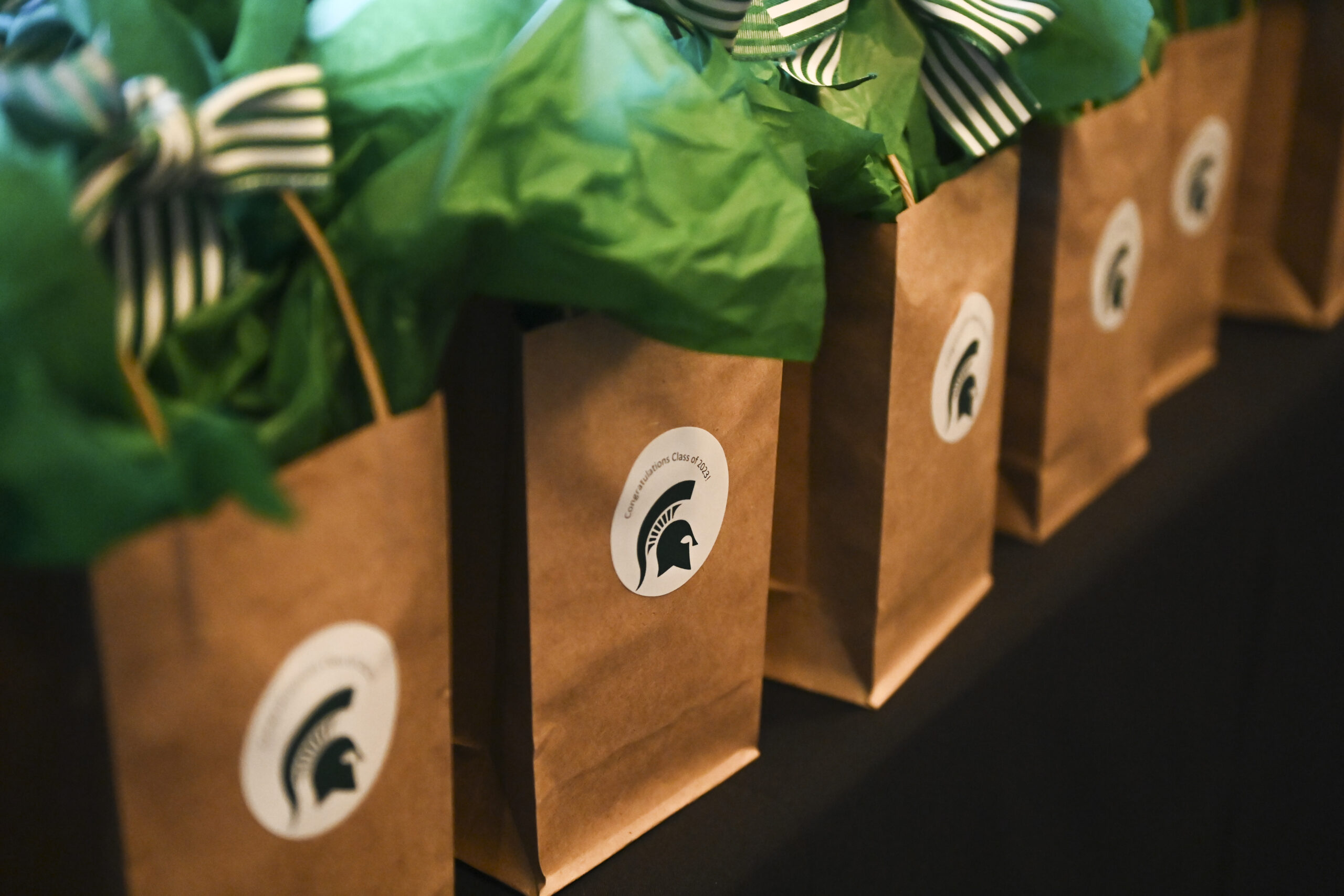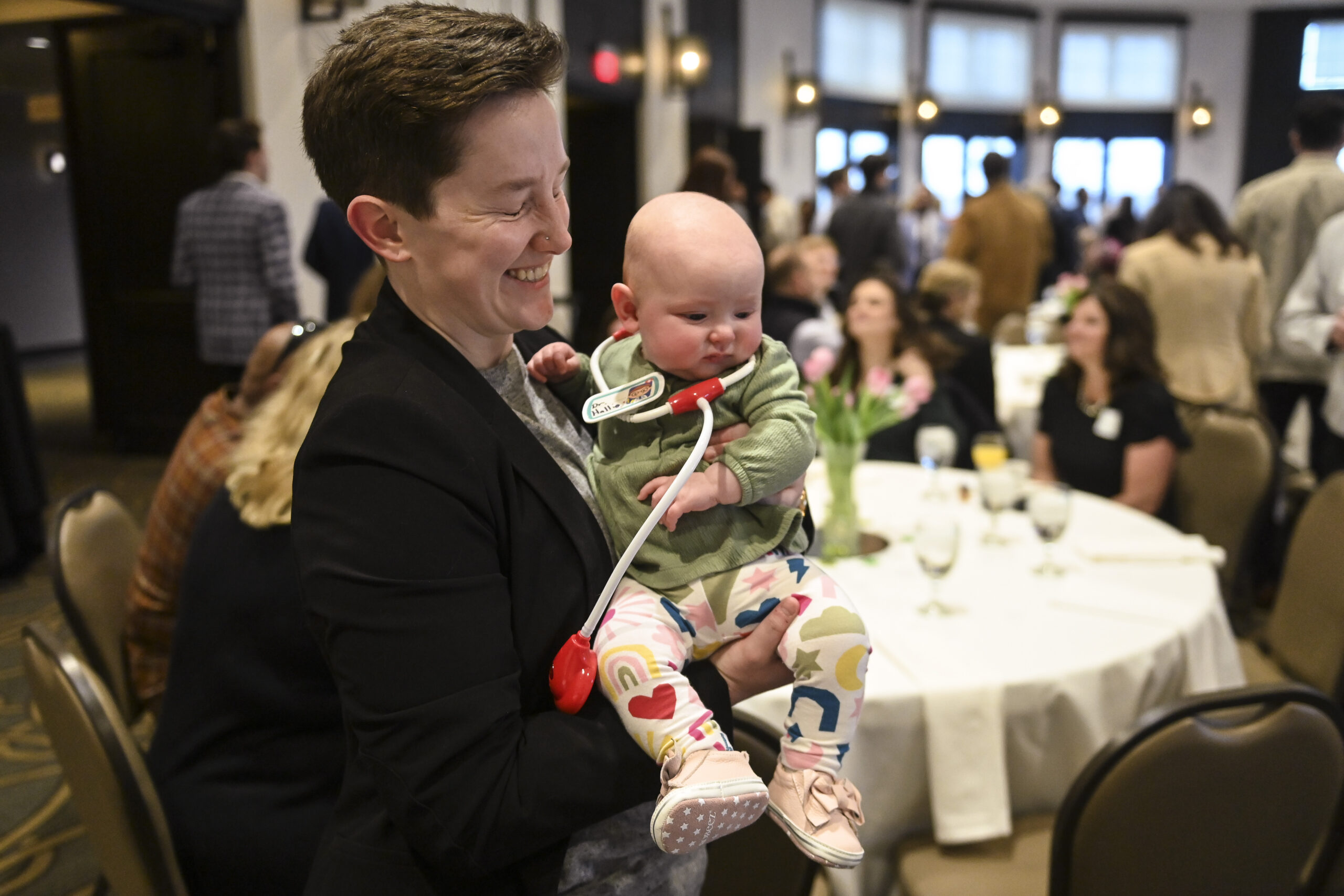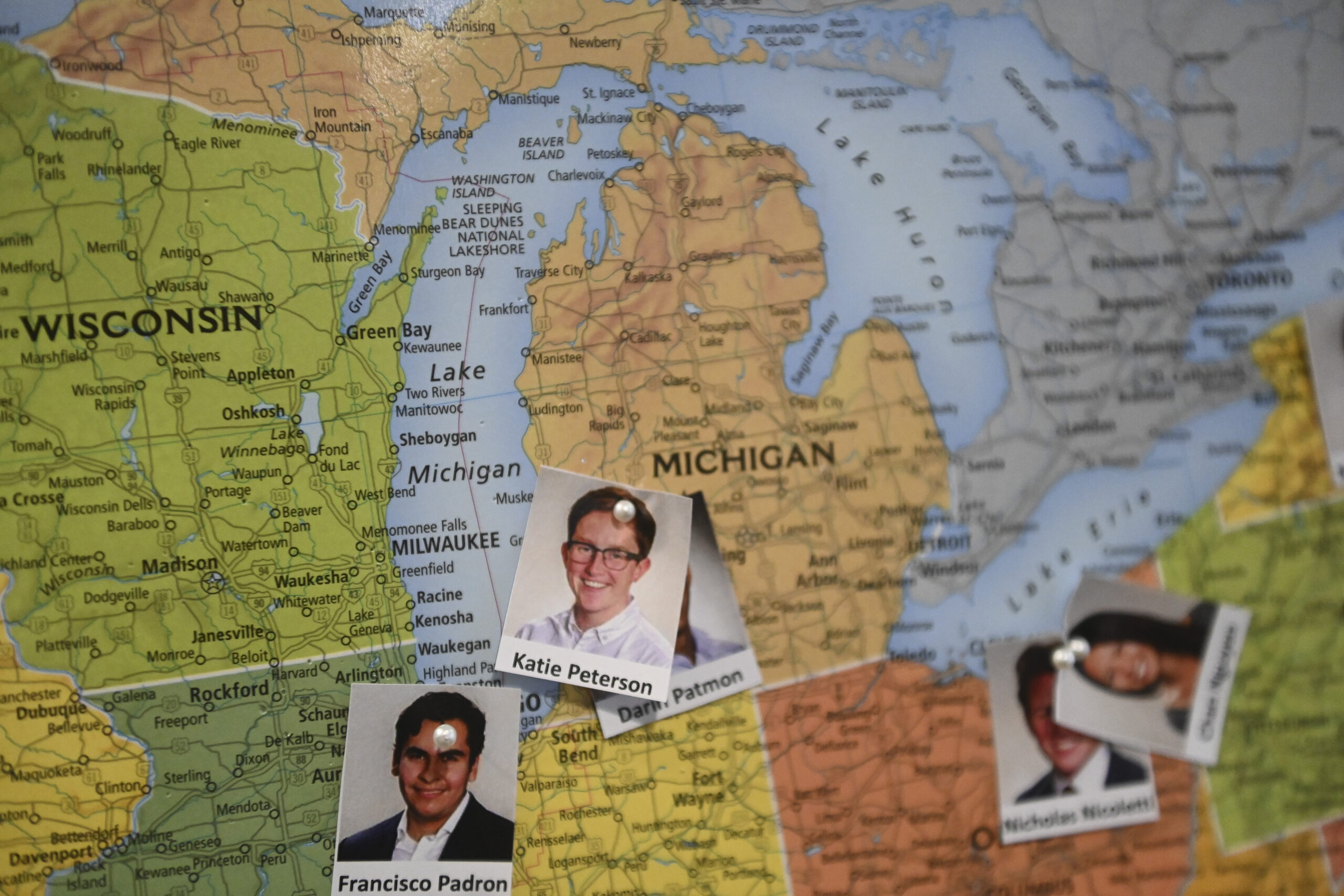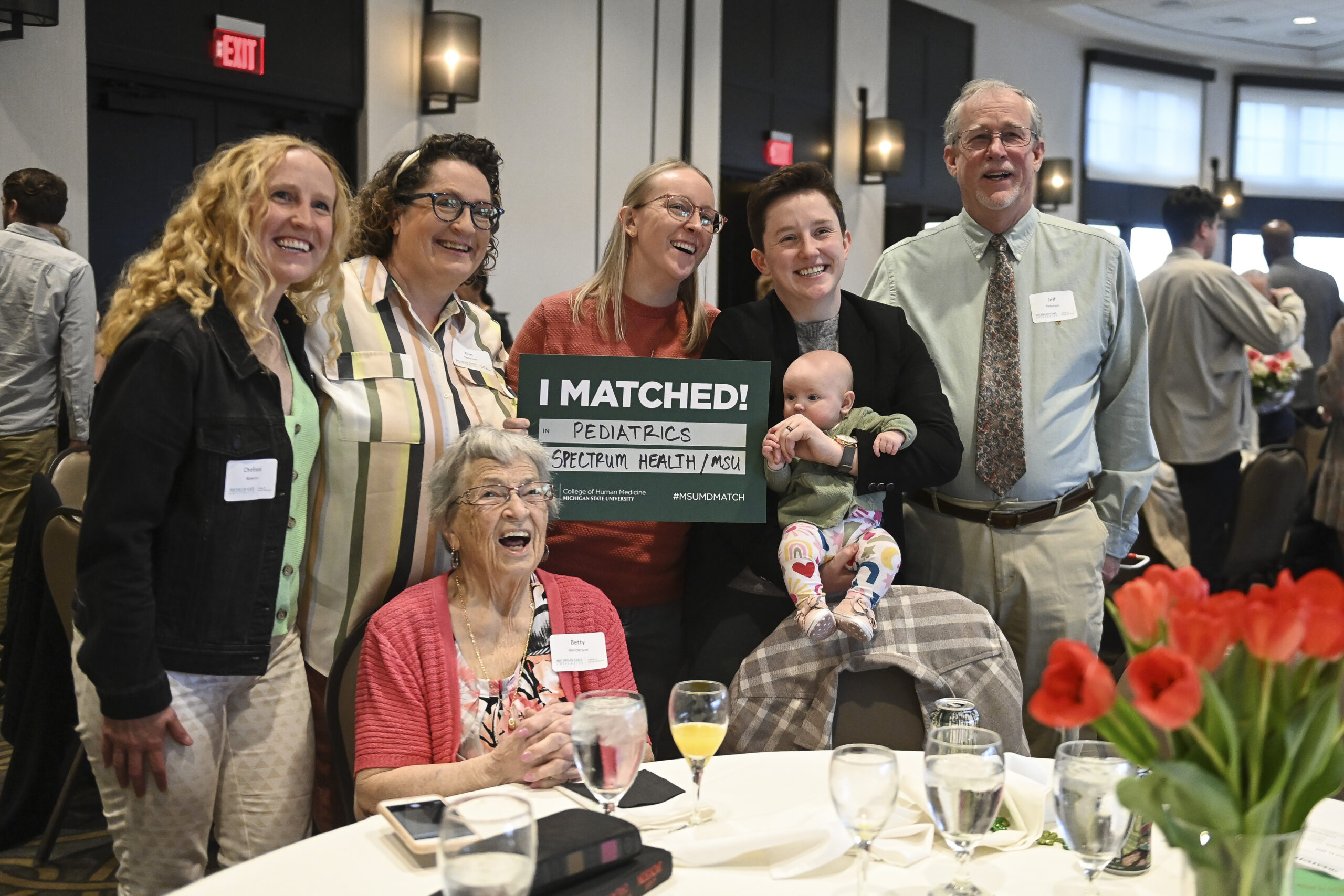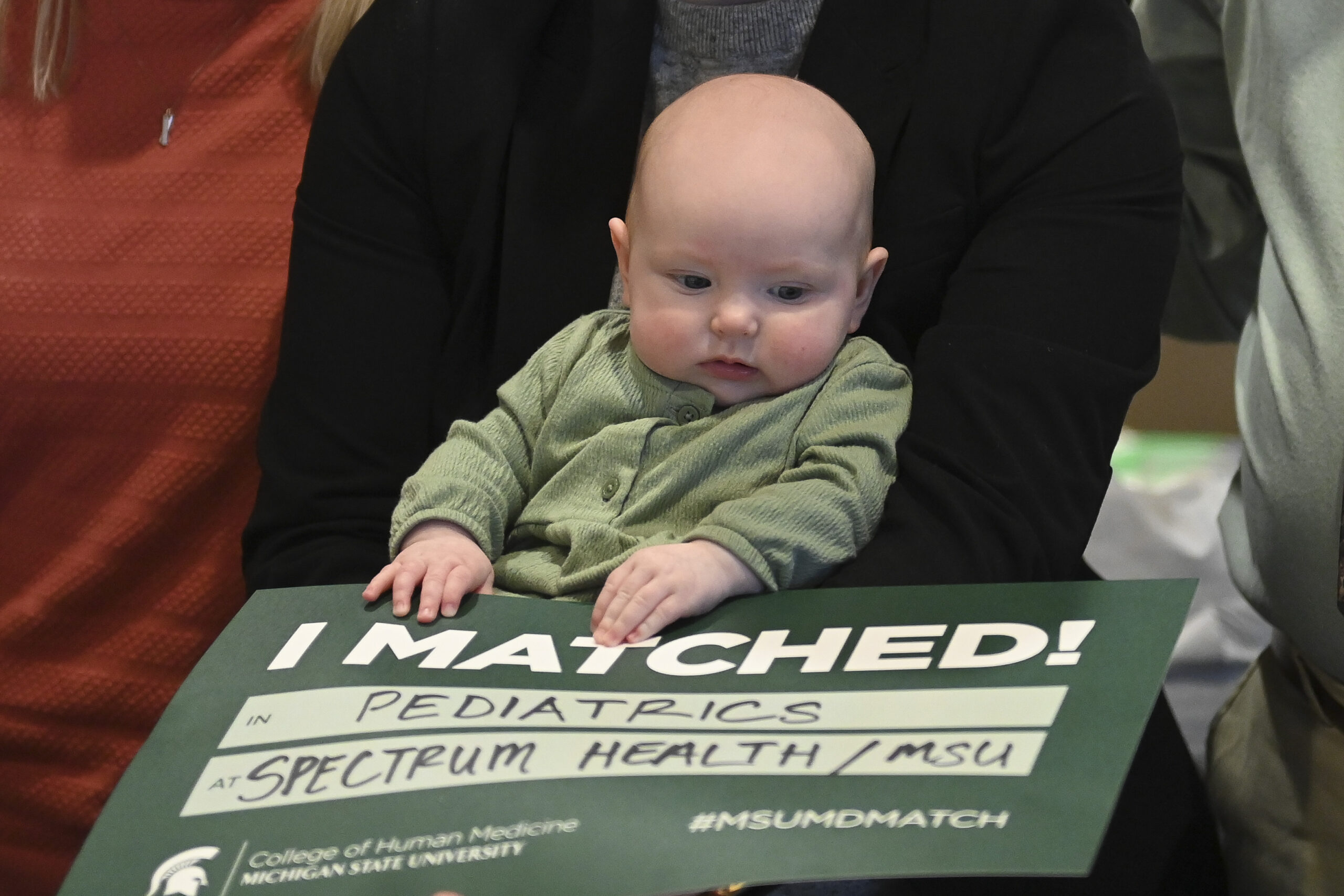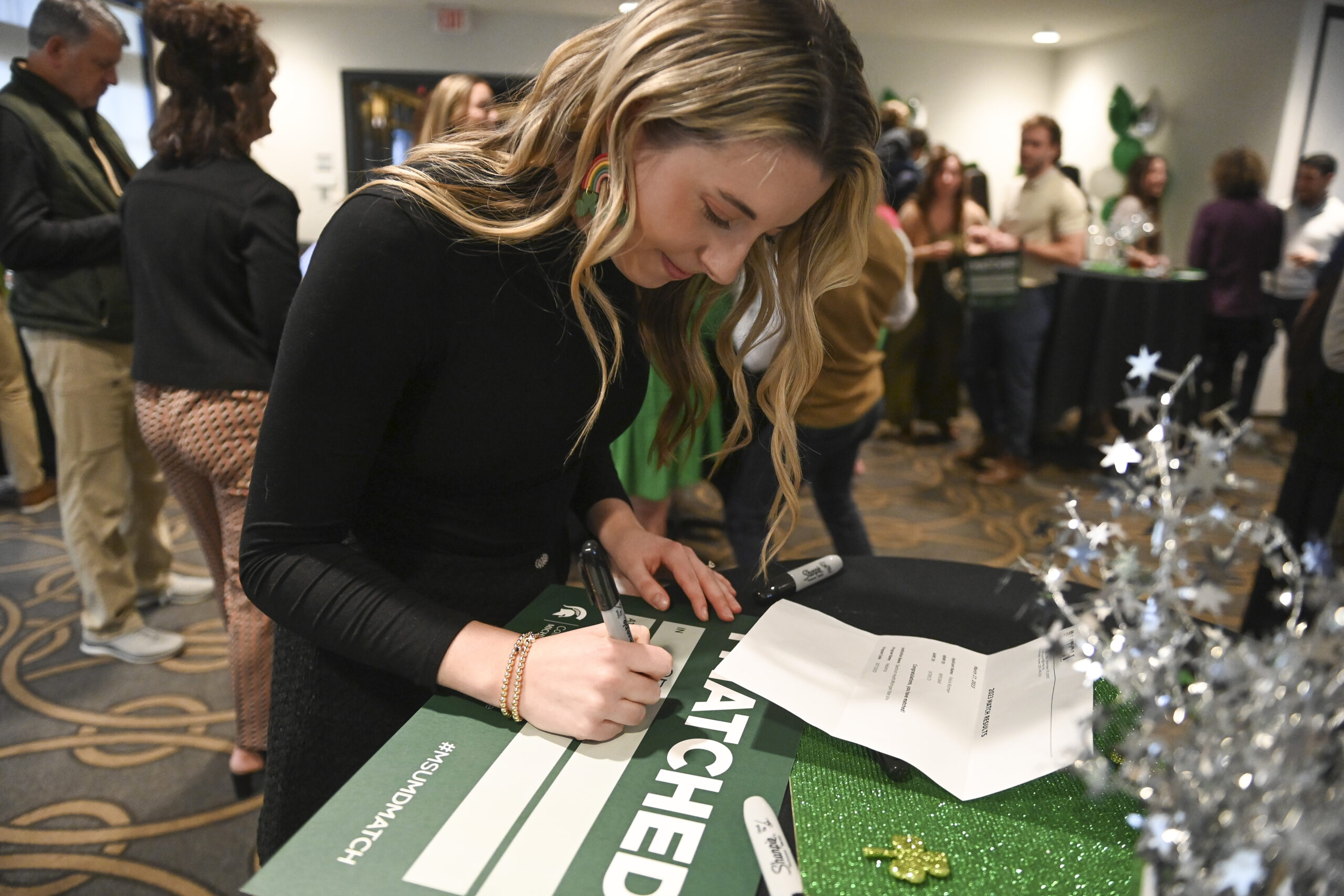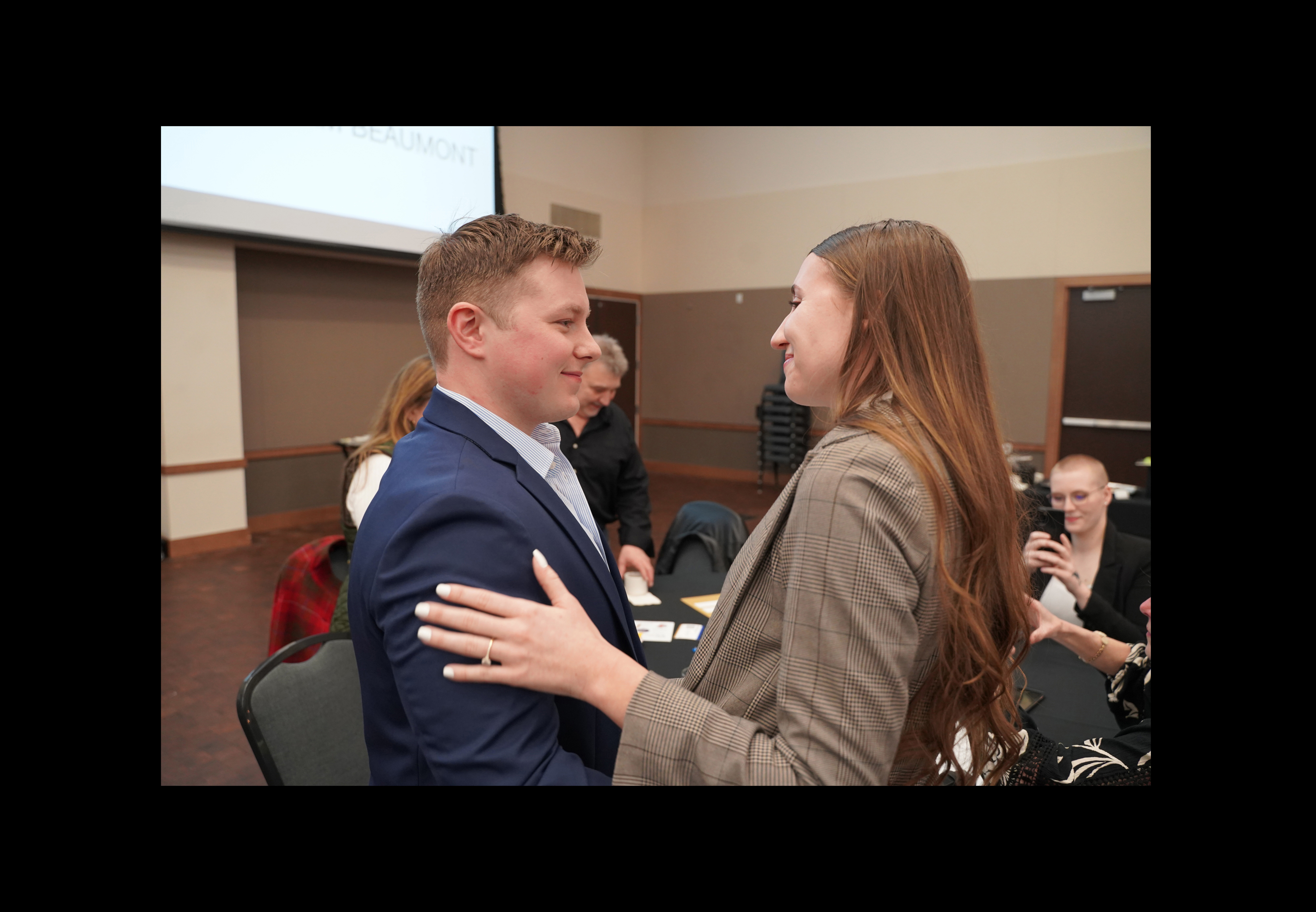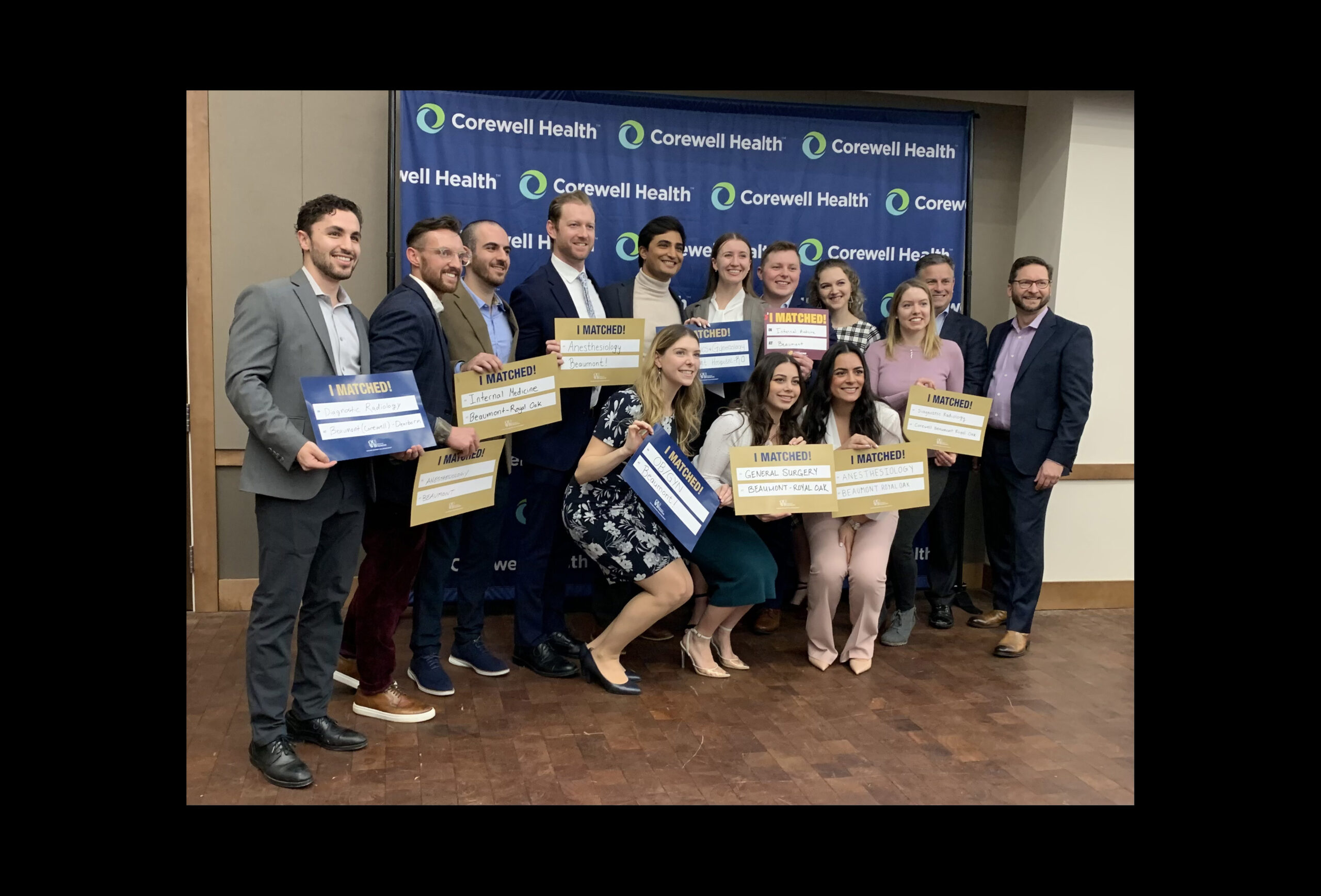[ad_1]
Katie Peterson hugs Felicia Bozeman after they they both find out they matched at Corewell Health. (Taylor Ballek | Corewell Health Beat)
Saleem Alameh matched at Corewell Health. “I don’t think I can find the words,” said Alameh, who is pursing internal medicine. “I’ve had amazing mentors. It will be exciting to put all these years of training to use and continue to grow my knowledge.” (Taylor Ballek | Corewell Health Beat)
Precisely at noon on this third Friday of March, these 69 fourth-year medical students joined others across the country in a highly charged tradition called Match Day. The whole process is guided by the National Resident Matching Program and the matches are legally binding. (Taylor Ballek | Corewell Health Beat)
Christine Knight stands and smiles when her area of study is called. (Taylor Ballek | Corewell Health Beat)
Darin Patmon holds his 2-year-old son, Shiloh, on his shoulders. Shiloh hold his dad’s envelope in his hands. He matched at Corewell Health. Patmon said he fell in love with plastic surgery after attending to a child who suffered severe facial fractures and other injuries in a car crash. (Taylor Ballek | Corewell Health Beat)
Bozeman begins to open her envelope while her family sits around her at a table and records her. (Taylor Ballek | Corewell Health Beat)
Alameh bounced up and down in anticipation to open his envelope. Corewell Health will welcome about 375 first-year resident physicians, also known as interns, into its hospitals this July, shortly after they graduate from medical school. (Taylor Ballek | Corewell Health Beat)
Felicia Bozeman jumps up in excitement and celebrates with her boyfriend Mitchell White when they find out she will be staying in Grand Rapids and doing her residency at Corewell Health. (Taylor Ballek | Corewell Health Beat)
More than 1,000 residents work with many of Corewell Health’s 11,500 physicians and advanced practice providers. (Taylor Ballek | Corewell Health Beat)
Residents are integral in the health care delivery system. In addition to shadowing physicians, they help with admissions, discharges, documentation, instruction of medical school students and other tasks, all under the supervision of an attending physician. (Taylor Ballek | Corewell Health Beat)
Katie Peterson holds her 4-month-old niece, Hallie Newton. Hallie wears her toy stethoscope in honor of Match Day. (Taylor Ballek | Corewell Health Beat)
After opening their envelopes, residents then find their headshot and pin it on a map of where they will be attending. (Taylor Ballek | Corewell Health Beat)
Katie Peterson poses for a photo with her family after finding out her match. (Taylor Ballek | Corewell Health Beat)
Match Day had added significance for Erika Burkett, an Oakland University William Beaumont School of Medicine student, and Nathaniel Bartosek, who attends the Central Michigan University College of Medicine. The two are engaged and successfully matched as a couple at Corewell Health in Southeast Michigan. (Courtesy of Oakland University)
It was only 11:30 a.m. on a Friday, but the bar at Watermark Country Club was open for business and a short line of mostly 20-something men and women made anxious small talk as they waited their turn. This day was years and years in the making.
Precisely at noon on this third Friday of March, these fourth-year medical students joined others across the country in a highly charged tradition called Match Day.
Hearts pounding, each of them would take a deep breath and open a sealed envelope bearing their name. Inside, they would find a plain white sheet of paper telling them where they would be spending the next three to seven years as a resident physician.
The envelope, please
At the Watermark, just minutes before noon, Michigan State University College of Human Medicine students Felicia Bozeman, Saleem Alameh and Darin Patmon were among those handed a bright green envelope that would reveal their future.
All three hoped against hope that the words “Corewell Health” were waiting for them inside.
Bozeman repeatedly turned the envelope over in her hands and looked to her loved ones for support. Saleem bounced up and down in anticipation. Patmon handed the envelope to his wife. Moments later, all three of them were celebrating.
The trio was among the 69 students from the MSU Grand Rapids campus who convened for the Match Day tradition.
“I don’t think I can find the words,” said Alameh, who is pursing internal medicine. “I’ve had amazing mentors. It will be exciting to put all these years of training to use and continue to grow my knowledge.”
Elsewhere, students from medical schools across the country got their assignments, too. Corewell Health will welcome about 375 first-year resident physicians, also known as interns, into its hospitals this July, shortly after they graduate from medical school.
“This is probably the biggest moment in any medical professional’s career,” said TaLawnda Bragg, MD, a hospitalist at Corewell Health in Grand Rapids and program director for the 44 internal medicine residents.
She was successful in her quest for 15 new residents this year. The labor-intensive search started last year with 2,800 applications, each one 45-50 pages in length. From there, her team selected 180 applicants for interviews; eight per day, about 20 minutes each with three or four faculty physicians.
The whole process is guided by the National Resident Matching Program and the matches are legally binding.
Better care with residents
“There’s an algorithm where the student hopefully gets their first choice, but if the program didn’t select them, it then goes to their second choice. The idea is that there is a perfect fit that meets the student’s needs as well as the program’s needs,” Dr. Bragg said.
“It’s a lot like dating,” she said. “And we are dating a lot of people.”
Residents are integral in the health care delivery system.
In addition to shadowing physicians, they help with admissions, discharges, documentation, instruction of medical school students and other tasks, all under the supervision of an attending physician.
“We are sharpening their skills. Having that direct mentorship is really important,” Dr. Bragg said. “And the patient gets a lot of attention. Patients get better care because there are so many eyes on them.”
Additionally, the residents keep the physicians on their toes.
“Residents keep us up to date, enthusiastic and engaged,” she said. “It is impossible to grow stagnant when there are resident physicians on your team.”
Many residency programs, including internal medicine, last for three years. Some last as long as seven.
Patmon’s residency in plastic surgery, a highly competitive field, is for six years.
He took a year off medical school to complete and present plastic surgery research at Helen DeVos Children’s Hospital. He hoped the research work would bolster his application.
That bet paid off on Match Day.
Patmon said he fell in love with plastic surgery after attending to a child who suffered severe facial fractures and other injuries in a car crash. That’s where he saw the breadth and depth of what he could accomplish in this field.
“And I’m so excited to actually be getting a paycheck and not taking out more loans,” he joked.
Match Day had added significance for Erika Burkett, an Oakland University William Beaumont School of Medicine student, and Nathaniel Bartosek, who attends the Central Michigan University College of Medicine.
The two are engaged and successfully matched as a couple at Corewell Health in Southeast Michigan. CMU even forwarded Bartosek’s information to OU so the couple could open their envelopes together.
Burkett joins the obstetrics and gynecology program while her fiancé matched into internal medicine.
“A couples match is a lot more difficult that matching as a single person because programs have to have both specialties. It’s very nerve wracking not knowing which permutation is going to be there when you open your envelope on Match Day,” Burkett said, adding that she “held it together” until moments before they opened their envelopes. That’s when the sobbing ensued.
“It just goes to show you how much tension and anxiety you build up,” she said.
More than 1,000 residents work with many of Corewell Health’s 11,500 physicians and advanced practice providers. One of them is Dema Fawaz, MD. She has spent the last three years as an emergency medicine resident at Corewell Health in Royal Oak, which was her top choice.
And she’ll be staying with the hospital system after her residency wraps up this summer and she becomes a practicing physician, contingent upon board certification. Corewell Health hired her as a full-time emergency medicine physician in Troy.
Craig Matisoff, MD, who is finishing his family medicine residency, is staying, too. He has accepted a hybrid role that will allow him to practice as a primary care physician and a hospitalist at Corewell Health in Greenville.
“The hardest part of finishing up residency is leaving your patients,“ he said. “But fortunately, I won’t have to because I’ll continue my work here in primary care.”
[ad_2]
Source link






